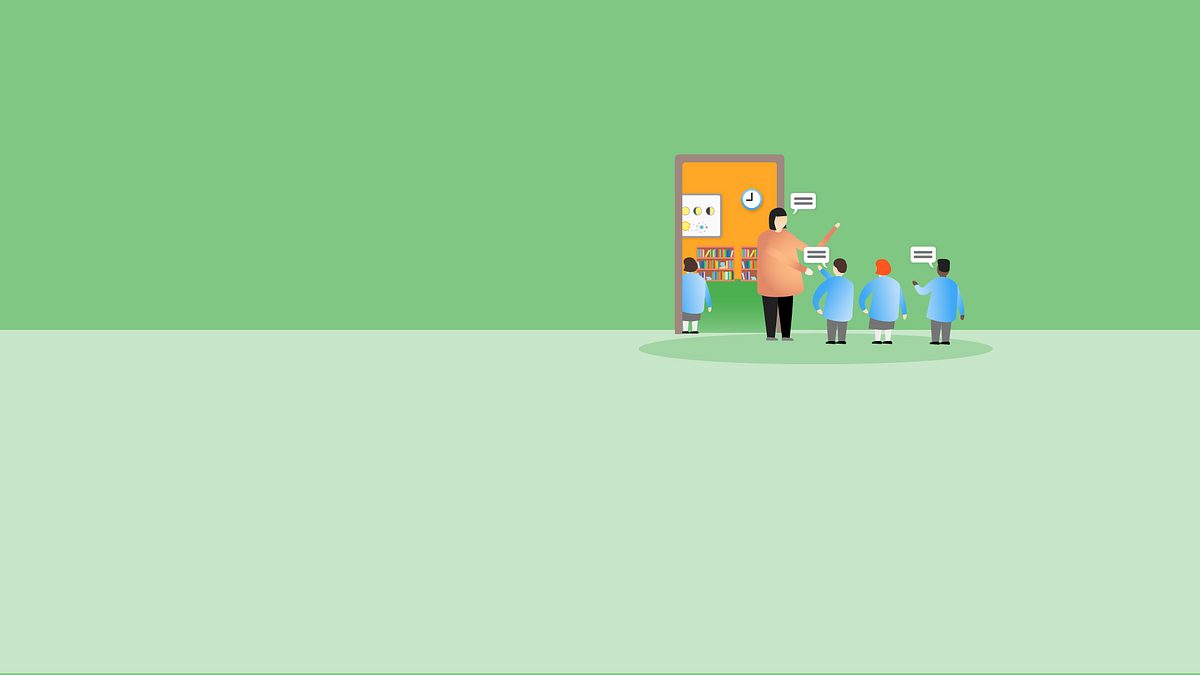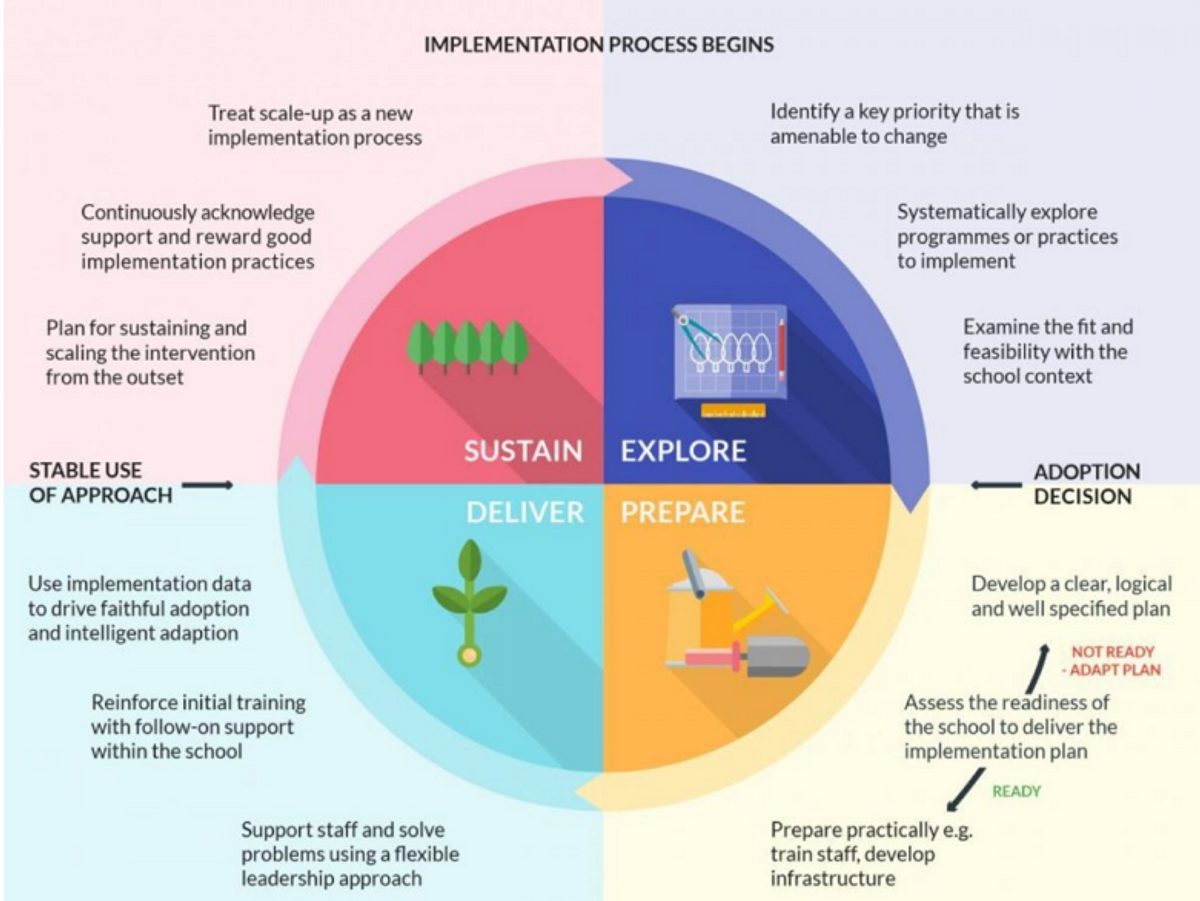

Research School Network: Simple things done well: the power of routines What does the evidence say about school and classroom routines? And what does that mean for you?
—
Blog
Simple things done well: the power of routines
What does the evidence say about school and classroom routines? And what does that mean for you?
Share on:

by Blackpool Research School
on the
"The honeymoon period will never last and if you haven’t taught the routines you need – for learning, for packing away, for silence, for listening to the teacher, for leaving the room, for being ready to learn – then chaos will come creeping in. Don’t let the only drill you teach in the first week be the fire drill. Teach clear routines from the outset. Work hard on this. Even experienced teachers have to. Simplify routines into three steps. Teach them, model them, recognise every child who follows them"
James is an early career teacher. Break is over, and his Year 10s begin drifting in from the yard for their History lesson. As James is huddled over his laptop trying to connect it to the whiteboard, the class are getting louder and an argument breaks out between two pupils. James struggles to get the class calm, and fears that little learning will be happening in the next hour.
Routines: what does the evidence…
Why behaviour, and why now?
We know that lots of schools are struggling ‘post-Covid’ with meeting pupils’ needs, and that more pupils than usual are struggling with poor social skills, low self-esteem, and anxiety. Coupled with recruitment and retention issues, and a cost of living crisis impacting families and staff, many schools are feeling the strain when it comes to pupil behaviour. It is not a coincidence that searches for behaviour support on the EEF website have spiked in the last two years.
Developing routines to support behaviour
School and classroom routines are standardised behaviours that all pupils are expected to adopt. They can bring order to moments that might otherwise feel unstructured, and reduce moments in the school day that are left to chance. Routines can be useful in any area of school life, from the way pupils move around the school, to the way they tidy away classroom resources, to the way they behave on school trips (Bennett, 2017).
As James noticed in our vignette above, transitions, such as the start of lessons, can be flashpoints for misbehaviour. An example of an effective routine to manage this particular transition is having all teachers greet pupils warmly at the classroom door: a simple, low-cost routine which research suggests can have a significant impact on pupil behaviour (EEF, 2019).
The message here is not to overlook simple things done well.
What does the evidence mean…
Implementation matters

One of the characteristics that distinguishes effective and less-effective schools, in addition to what they implement, is how they put those new approaches into practice. Routines are no exception to this. Schools or teachers looking to implement a new routine need to carefully consider the changes they are making to ensure they stick and make a difference.
This will include an EXPLORE phase, in which our ‘problem’ is identified. Which routines will be most beneficial, and why? What is the problem we are looking to solve? A decision will also need to be made as to whether routines should be developed at a classroom level, or will be consistent across the whole school.
For example, a school we are working having carefully and successfully implemented a whole-school routine around the starts of lessons, noticed a flashpoint around certain transitions in the school day – particularly movement to break and from form time to lunch. Leaders considered the changes that could be made, talked to colleagues about potential solutions, and then clearly communicated the change in approach to all staff. This was a simple change, but resulted in a reduction in the confusion and uncertainty around those particular transitions.
The next stage will involve making sure we PREPARE effectively for change. This will involve drawing up a well-specified plan and will include practical considerations. For example, as a senior leader asking all teachers to line pupils up outside the classroom before welcoming them in have you checked that this is physically possible for every classroom in the school? And if implementing a learning routine such as staring every lesson with a ‘Do Now’ quiz, have we checked that this is relevant and useful to all subject areas and all age groups? If we are working at a whole school level, there may be some professional development implications, which might involve time for teachers to rehearse the routine away in pairs or small groups.
And there are many examples of ideas and strategies which have been started in schools but which have failed to SUSTAIN in the longer term. You can probably think of routines which have been tried in your classroom or school, but which faded and lost impact over time.
Reflection questions
What consistent classroom routines are in place in your classroom or school?
What are the points in your day that would benefit from a routine?
How will this routine be communicated and rehearsed to staff and pupils?
How will you ensure that the routine sticks?
How are staff supported in developing classroom management techniques?
More from the Blackpool Research School
Show all news

Maths – it’s good to talk! But what are we talking about…?
We need to consider structure and modelling, but also whether our tasks are worth talking about…
